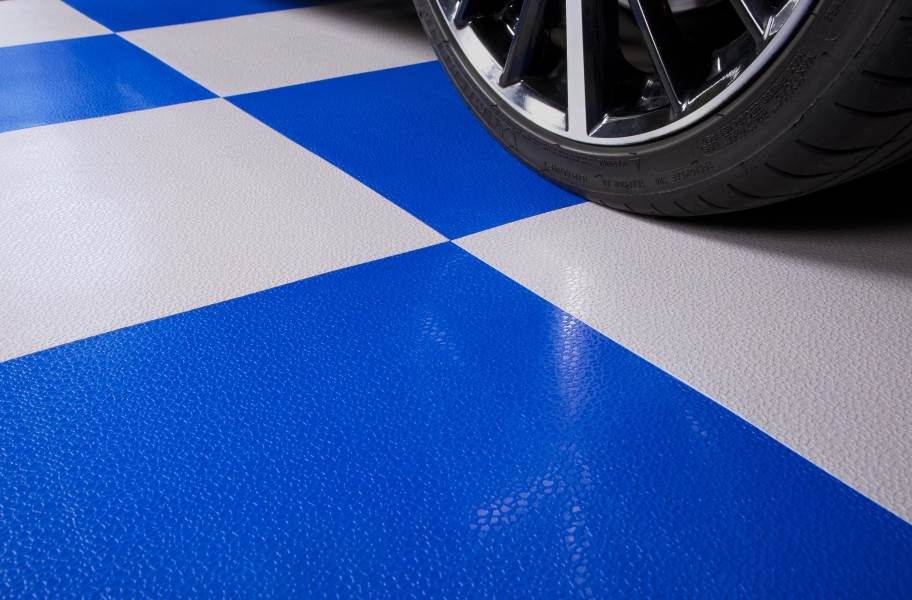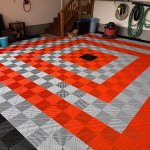- Joined
- Apr 6, 2017
- Messages
- 63,270
- Reaction score
- 52,971
- Gender
- Male
- Political Leaning
- Independent
Anyone have any experience with interlocking tiles in a garage?
We had the garage floor epoxy coated about eight years ago. In the meantime we have a new vehicle with newer tires. The tires heat up while driving and the newer tires have pulled patches out of the floor. The warranty was one of those “as long as you own your house” deals and to be fair, the company sent out a rep to patch the trouble spots. About a week after the patching, another patch pulled up. According to the interweb, this is a common problem with epoxy coated floors and newer tires. Doesn’t make much sense to park outside until the tires cool and then pull into the garage.
There are a few options; there are solid tiles but the seams aren’t water-proof and I worry about water trapped under the tiles. There is an open tile that claims the water will drain and find the incline to drain out the door.

 www.rubberflooringinc.com
These are the solid tiles.^^^
www.rubberflooringinc.com
These are the solid tiles.^^^
 www.swisstrax.com
These are the open tiles.^^^
www.swisstrax.com
These are the open tiles.^^^
We had the garage floor epoxy coated about eight years ago. In the meantime we have a new vehicle with newer tires. The tires heat up while driving and the newer tires have pulled patches out of the floor. The warranty was one of those “as long as you own your house” deals and to be fair, the company sent out a rep to patch the trouble spots. About a week after the patching, another patch pulled up. According to the interweb, this is a common problem with epoxy coated floors and newer tires. Doesn’t make much sense to park outside until the tires cool and then pull into the garage.
There are a few options; there are solid tiles but the seams aren’t water-proof and I worry about water trapped under the tiles. There is an open tile that claims the water will drain and find the incline to drain out the door.

Flex Nitro Tiles - Quiet, Durable Garage Floor Tiles
Durable garage flooring. Enhance your garage space with easy-to-install, long-lasting, and a limited lifetime warranty. Available in Coin, Diamond, and Smooth patterns
DIY Garage Floor Tiles | Upgrade The Look of Your Garage Flooring | Swisstrax
Swisstrax garage floor tiles is highly customizable, incredibly durable, long-lasting solution, and the best option for your garage floors.

